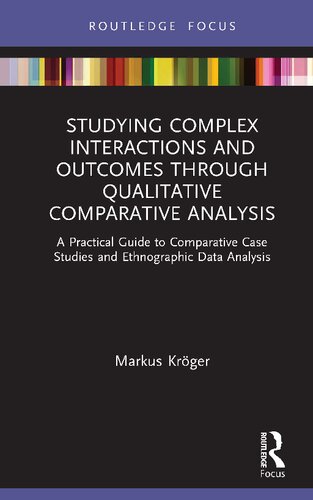

Most ebook files are in PDF format, so you can easily read them using various software such as Foxit Reader or directly on the Google Chrome browser.
Some ebook files are released by publishers in other formats such as .awz, .mobi, .epub, .fb2, etc. You may need to install specific software to read these formats on mobile/PC, such as Calibre.
Please read the tutorial at this link: https://ebookbell.com/faq
We offer FREE conversion to the popular formats you request; however, this may take some time. Therefore, right after payment, please email us, and we will try to provide the service as quickly as possible.
For some exceptional file formats or broken links (if any), please refrain from opening any disputes. Instead, email us first, and we will try to assist within a maximum of 6 hours.
EbookBell Team

4.8
94 reviewsStudying
Complex Interactions and Outcomes Through Qualitative Comparative Analysis: A
Practical Guide to Comparative Case Studies and Ethnographic Data Analysis
offers practical, methodological, and theoretically robust guidelines to
systematically study the causalities, dynamics, and outcomes of complex social
interactions in multiple source data sets. It demonstrates how to convert data
from multisited ethnography of investment politics, mobilizations, and citizen
struggles into a Qualitative Comparative Analysis (QCA).
In this
book, Markus Kröger focuses on how data collected primarily via multisited
political ethnography, supplemented by other materials and verified by multiple
forms of triangulation, can be systematically analyzed through QCA. The results
of this QCA offer insight on how to study the political and economic outcomes
in natural resource conflicts, across different contexts and political systems.
This book applies the method in practice using examples from the author’s own
research. With a focus on social movement studies, it shows how QCA can be used
to analyze a multiple data source database, that includes results from multiple
case studies.
This book
is a practical guide for researchers and students in social movement studies
and other disciplines that produce ethnographic data from multiple sources on
how to analyze complex databases through the QCA.